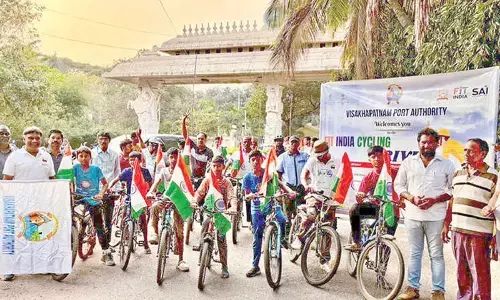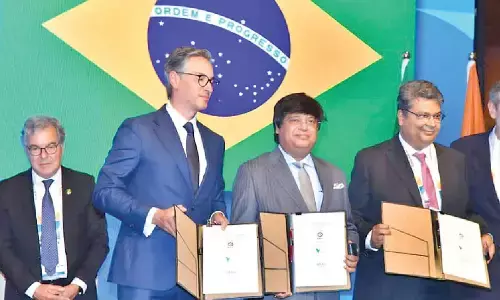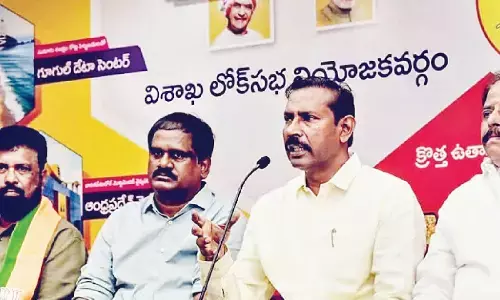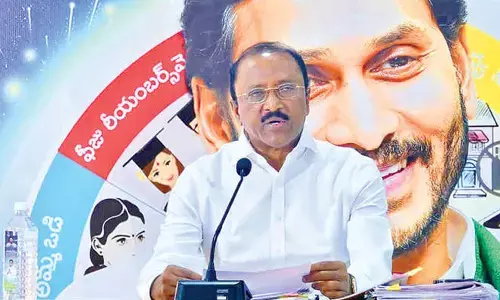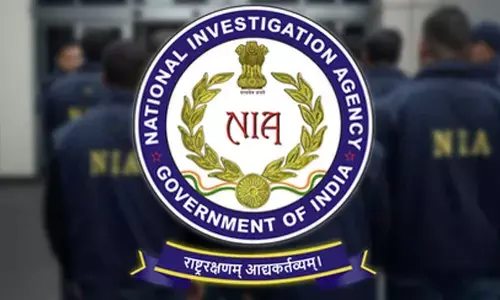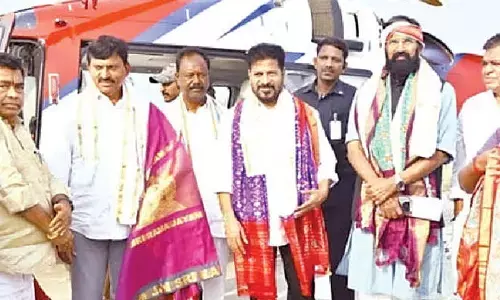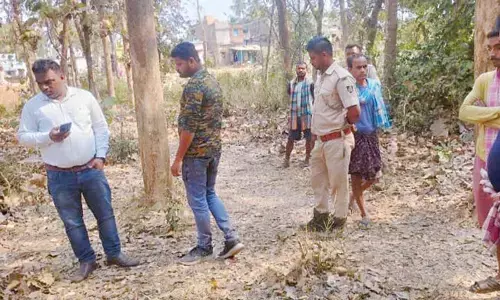Time to mainstream fringe voices
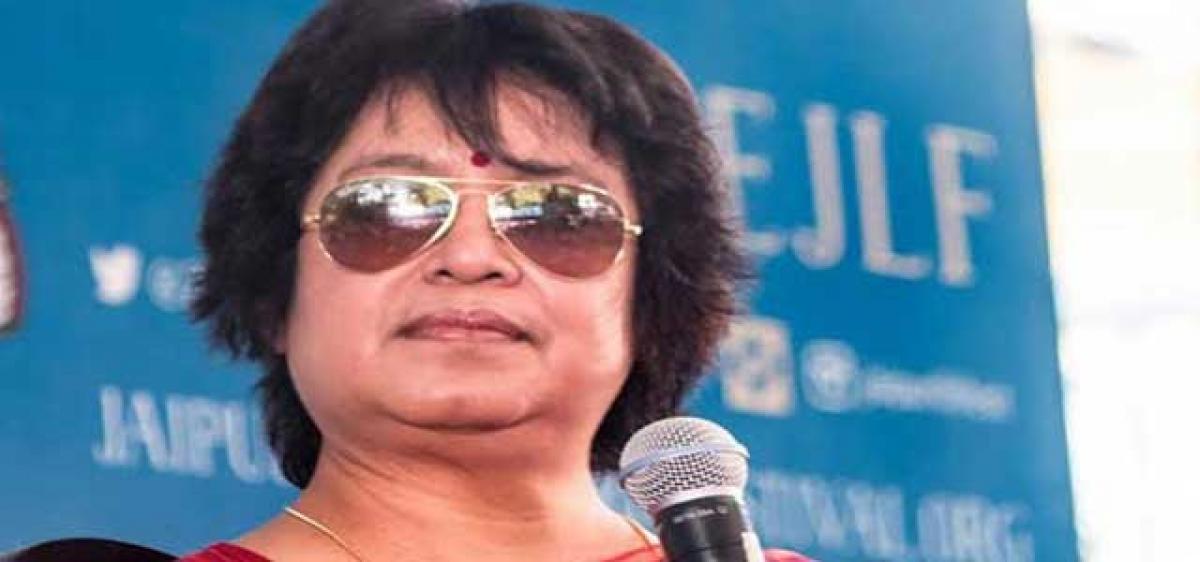
This year, the Jaipur Literature Festival, or JLF, completed 10 years. With estimated footfalls of close to half a million, it is now the largest free literature event in the world.
This year, the Jaipur Literature Festival, or JLF, completed 10 years. With estimated footfalls of close to half a million, it is now the largest free literature event in the world.
JLF is known across the globe for its unbridled space for democratic engagement and free speech, and of course the stellar line-up of speakers.
Yet, this unique festival is spangled with its own nagging web of quandaries and contradictions.
On 23 January, the final day of ‘Zee JLF 2017’, the meticulously bedecked front lawns of the iconic Diggi Palace Hotel (the festival venue) hosted an interesting speaker who turned up unannounced amidst heavy police presence – Taslima Nasreen.
The exiled Bangladeshi writer – shunned by her own people for her starkly nonconformist views on religion, society, and politics – came to talk about her new book ‘Exile: A Memoir,’ and retell her poignant story.
Nasreen’s cameo appearance act, quickly and not surprisingly, turned into a point of contention for a particular section of the non-attendant crowd. A large swarm of Muslim conservative groups gathered outside the venue to demonstrate against her participation, demanding that the festival organisers refrain from inviting ‘controversial’ figures like her to future editions.
While the conservative opposition was almost proverbial in its occurrence, what stood out glaringly was Festival Producer Sanjoy K Roy’s response to the demands of the protestors.
“They expressed their anger…. I heard them out. Explained we supported minorities in every way. Underscored that we are a platform for all points of view. Agreed that we should consider their request not to reinvite them [‘controversial speakers’],” Roy told PTI.
Ironically, only two days back, Oxford historian Timothy Garton Ash – one of the many celebrity speakers at the festival – spoke about something called the “heckler’s veto” not very far away from the front laws, during his own stage session on “Why the Future of Free Speech Depends on India.”
The term, ‘heckler’s veto,’ denotes the acquired right of a heckler to silence an act of speech through institutional censorship. Accepting it, Professor Ash said, is to deny any democratic society its inalienable right to free speech. But, here was one of the key organisers of JLF not only accepting the veto, but also re-framing it as a “request.”
This was just one of the many paradoxes that JLF appears to be battling with. The entire episode is a haunting throwback to 2012, when Salman Rushdie’s scheduled video talk at the festival was called off after massive protests by certain Muslim groups.
At that time, William Dalrymple – noted writer and JLF Festival Director – wrote in an editorial in The Guardian, somewhat in distress: “If you give in to the intimidation, you put at risk all the principles upon which literary life is based: What is the point of having a literary festival, a celebration of words and ideas, if you censor yourself and suppress an author's voice?”
Just when one was led to believe that the JLF team does surely attribute some kind of sincere, substantive value to the festival, they began to reveal their moral and ethical vagaries.
In light of title sponsorship provided by Zee Media Group to this year’s Jaipur edition and Vedanta’s at the 2016 Southbank (London) reiteration, the people behind JLF have found themselves nudged to a confessional by those who disfavour not just the overt commercialisation of a free, egalitarian space, but also the contentious ethics of the companies in question.
In this regard, Dalrymple’s response is far from abstract. In a recent interview to Livemint, on being quizzed about the hypocrisy of roping in Zee and Vedanta as sponsors, Dalrymple said that this is inevitable.
He says that in an ideal situation, he would like it if Greenpeace, Amnesty International, World Wildlife Fund (WWF), or Rainbow Warriors sponsored JLF.
However, “it ain’t gonna happen.” Despite what most people seek in terms of festival funding, “it is going to be a corporate.” He, very categorically, adds that if not for Zee, “there is absolutely no question” that JLF would have closed down, since other big companies “fell away” due to demonetisation.
The above position might carry a fair strategic logic, but ingloriously upends the essence of JLF’s democratic space, and not simply because Zee News brutishly persecuted university students for speaking their mind or Vedanta usurped the rights of the indigenous peoples.
In patronisingly and insouciantly dissing ethical concerns, and in projecting an absolutist argument of “corporate money or nothing,” Dalrymple creates an invisible fencing around the dialogical space of the festival. He isolates a sizeable section of the conscious public from a potential conversation about alternative modalities of free space engagement…
Corporatisation isn’t the only charge that JLF faces today. Despite its great reputation among serious readers and casual thinkers alike, many accuse the festival of perpetuating a culture of class- and interest-based isolationism.
One of my friends, a trainee journalist with a leading Indian English daily, tells me that he finds the festival to be “a manifestation of gated communities we see in posh localities of our urban jungles.” To him, they are “nothing more than Gymkhana Club meetings in the royal gardens of South Delhi.”
Contrarily, another friend complains to me about the no-cost entry that allows casual visitors and ‘non-serious’ readers to walk in – the ones who come just for the accessorial indulgences (selfies, stalls, and scuttlebutts). He argues that this erodes the functional value of the festival, and prefers that the organisers maintain some sort of incentive-based exclusivity as far as public participation is concerned.
Neither of them are entirely unfounded in their judgment. Greater corporate involvement can have two outcomes: De facto alienation of those who already lack social resources, privilege, or agency to participate in such an event (despite it being free); and the no-cost component automatically ensuring higher footfalls and thus greater brand visibility for sponsors (so what if the venue is overcrowded?).
The former perpetuates structures of alienation, while the latter diverts attention from the ‘literature’ part of the festival.
The truth, however, remains that only in JLF can one overhear something like “The intersectionality of the narratives of hierarchical subversion are best presented in her new book,” at one moment, and “Yaar, I have never even read a single novel in my life!” at the next. In this dazzling plurality of narratives and penchants lies the peculiarity of the space that the JLF team – wittingly or otherwise – has sustained over the past one decade. This is the kind of space that has the potential to broaden and deepen the very meaning of literature to make it an instrument of social change.
Where to now?
Despite the above, an awkward undercurrent of censorship and ethical frivolity seems to be ebbing in on to JLF, and one cannot be sure of what the organisers have in mind for future editions.
There is perhaps not a space more meaningfully productive than JLF’s to deny the heckler of its veto over the right to speech. Yet, I notice the absentee and the gagged. For example, I notice the glaring absence of Pakistani authors and thinkers in the festival, and I notice the willingness of the organisers to jettison their own beliefs under threat of subversion.
To defiantly invite even a single Pakistani author would be to slowly but steadily trounce the gag imposed by hyper-nationalists. However, I also notice the realpolitik of the world around – the broken ceasefires along the borders and asymmetric nuclear deterrence that make reintegration a distant dream.
The festival could also do well with more South Asian writers, especially ones who are rarely read or heard in the mainstream. If the idea is to provide unhindered public access to ‘celebrity writers,’ then here is a chance to redefine the entire celebrity discourse by mainstreaming fringe voices. JLF is already on the international radar, why not use it to empower the marginalised and do justice to the natural richness of literature?
I certainly await next year’s edition of JLF — not really to gather more cynicism, but mostly to locate my own centers of morality, consciousness, and perception. This, I hope to find, in not just what the speakers talk about on the stage but also what the stage in itself represents.
By: Angshuman Choudhury


